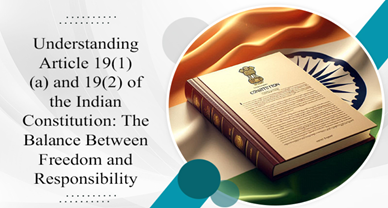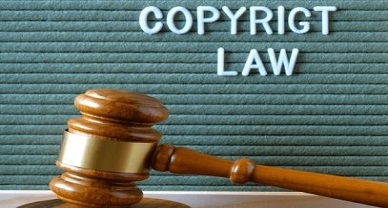Moral Rights in Media and Entertainment Law: A Contemporary Analysis
In the current landscape of media and entertainment, artists, creators, performers frequently find their work being reused, adapted, or altered. While copyright law safeguards the economic interests of authors, moral rights protect their personal and reputational interests.
Moral rights protect the creator’s right to be identified as the author of their work (right of paternity) and to object to any distortion, mutilation, or modification that harms their honor or reputation (right of integrity). Under Indian law, these rights are codified in Section 57 of the Copyright Act, 1957, making India one of the jurisdictions that explicitly recognizes and enforces moral rights beyond economic considerations.
In an industry governed by collaboration and adaptation, such as film and music, moral rights gain heightened significance. Directors may find their scenes cut without consent, lyricists may see their works altered in remixes, and scriptwriters may face distortions of plot in screen adaptations. As the boundaries between original and modified content blur in the digital age, the relevance of moral rights in protecting creative identity and integrity has become more crucial than ever.
Moral Rights
Moral rights, as different from economic rights, refer to the author’s right to claim authorship of the work and to prevent its distortion, mutilation, or modification that would harm their honor or reputation. Section 57 of the Indian Copyright Act, 1957 identifies two main moral rights — (1) the right of paternity, and (2) the right of integrity.
The film and music industries often involve multiple kinds of creative integration, with works being edited, dubbed, remixed. Such interventions can frequently infringe on the creator’s moral rights. For instance, changing a film’s ending or re-editing a script might compromise the author’s vision, making the assertion of moral rights essential.
Landmark Cases related to Moral Rights
In the landmark case of Amarnath Sehgal v. Union of India (2005), the Delhi High Court termed the Moral rights as the soul of the author’s works. The author thus has a right to preserve, protect and nurture his creations through his moral rights
The Court in this case held that destruction or removal of the mural, created by the author, from a government building without his consent was a violation of his moral rights. The court emphasized that artistic expression is an extension of the author’s personality, deserving protection under Section 57.
Similarly, in Mannu Bhandari v. Kala Vikas Pictures, the author’s story was adapted into a film in a way that altered its essence. The court supported the author’s right to object to such distortion, reinforcing the value of creative integrity in adaptation.
Moral rights, however, are not absolute. In Raj Rewal v. Union of India (2019), the Delhi High Court acknowledged that although the author has moral rights, they must be balanced with the rights of the owner. This creates a delicate tension between the artistic rights of the author and the functional needs of producers and owners in the media space.
Current Scenario
The digital age poses new challenges to moral rights. Platforms like YouTube, Instagram Reels works on short-form adaptations, mashups, remixes, and reaction videos — often using original content without attribution. While these formats encourage creativity and accessibility, they also blur the lines of authorship, making it increasingly difficult for creators to assert their moral rights. With AI-generated content, remix culture, and short-form adaptations, the attribution and integrity of original works are often harmed.

As content is rapidly shared, remixed, and transformed in real-time, the enforcement of Section 57 becomes more relevant nowadays than ever. Legal remedies, however, are slow and costly, and social media platforms often fail to act unless there is substantial public outrage. To protect the sanctity of original works in the entertainment industry, there is a need to strengthen moral rights enforcement mechanisms, raising awareness among creators about their rights, and ensure that digital platforms are held accountable for respecting authorship and creative integrity.
In conclusion, moral rights are indispensable and significant for upholding the dignity and identity of authors within the media and entertainment industry. Courts have consistently affirmed their significance while calling for a fair balance with artistic, commercial and functional considerations. As content creation continues to evolve, reinforcement of the moral rights framework will be key to sustaining the soul of creative expression.
Indian courts have played a progressive role in recognizing and enforcing moral rights, reinforcing their significance through landmark judgments. However, the enforcement landscape remains challenging, especially in a digital era characterized by fast-paced content production, unauthorized adaptations, and AI-generated works, that often bypass the attribution and consent of original authors. Strengthening legal awareness, encouraging ethical industry practices, and implementing active enforcement mechanisms are necessary steps toward ensuring that moral rights are not only recognized on paper but actively upheld in practice.
Ultimately, the reinforcement of the moral rights framework will be key to sustaining authenticity, creative dignity, and long-term respect for the artistic community — values that form the very foundation of the media and entertainment ecosystems.
Author:– Aniruddh Singh Raghuvanshi, in case of any queries please contact/write back to us at support@ipandlegalfilings.com or IP & Legal Filing.
References
- Copyright Act, 1957, Section 57
- Amarnath Sehgal v. Union of India, 117 (2005) DLT 717
- Mannu Bhandari v. Kala Vikas Pictures Pvt. Ltd., AIR 1987 Del 13
- Raj Rewal v. Union of India, 2019 AIRONLINE 2019 DEL 911
- Moral Rights, IPleaders Blog, https://blog.ipleaders.in/moral-rights/


